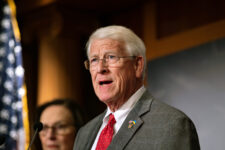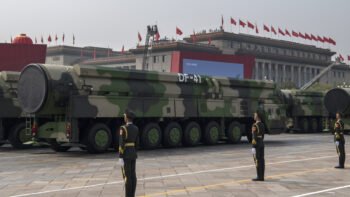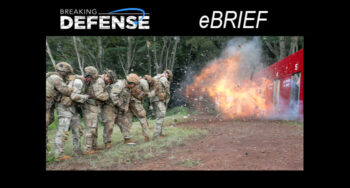
Ashton Carter
WASHINGTON: If confirmed as Secretary of Defense, Ash Carter will be “more energetic” than outgoing Sec. Chuck Hagel, a top Pentagon official said today.
The rational and mild-mannered Jamie Morin, the Pentagon’s director of cost assessment and program evaluation (CAPE), of course put it more politely than that in his remarks this afternoon at the Center for Strategic and International Studies. “Sec. Hagel has been an absolute pleasure to work with. I think he’s been a steady hand in a trying time,” Morin said. “If he’s confirmed, Dr. Carter will bring an even more energetic perspective.”
Morin’s next remark made clear he thought Hagel had been ground down by the unending global turmoil he’s had to manage: Afghanistan; Yemen; ISIL; Syria; and Russia for starters. “The reality is that job is so draining, that [as] I even observed in Sec. Hagel in his two years there, it takes an enormous amount out of a person,” Morin said.
During his speech Morin repeatedly emphasized Ash Carter’s energy. “It will be a great challenge for me personally,” smiled Morin, who’s worked for Carter before. “I’m prepared to buckle my seatbelt and get ready.”
“I’ve advised my staff to finish program reviews so people can take a couple days of vacation” before Carter comes in, Morin added to laughter.
“If Dr. Carter is confirmed as secretary, I think he will be an enormously energetic and powerful force for continuing the change in the department,” Morin said. “He’s shown through his career just an intense focus on getting the military man or woman in harm’s way what they need. You saw that through how he drove on issues like MRAP and counter-IED” as death tolls spiked from roadside bombs.
“He has a deep insight into the process issues, but he doesn’t have a lot of patience when they don’t work properly or when they get in the way,” Morin said.

Jamie Morin
High-powered predecessors Bob Gates and Leon Panetta were hard acts to follow. And Hagel hasn’t seemed a particularly forceful SecDef. Not only was he bullied by the White House, he’s sometimes seemed overshadowed by Chairman of the Joint Chiefs Gen. Martin Dempsey. And, of course, Hagel’s nomination hearing may have set a record for dismal.
Carter will need enormous energy to cope with the problems America faces. The military’s still repairing the damage to readiness from the 2013 sequester’s budget cuts, Morin said. If sequestration returns in full force in 2016, when the Ryan-Murray Act’s “temporary reprieve” runs out, the blow will fall hard on modernization as well. Full sequester means not only that the Navy shrinks from 11 carriers to 10 and the Army from 450,000 soldiers to 420,000, Morin said, but that the Air Force retires its entire fleet of KC-10 tankers and the Marine Corps loses half its modernization budget across the board. The inter-service F-35 Joint Strike Fighter program will see “at least a squadron” of planes vanish from the budgets for 2016 to 2020, though Morin clarified when I asked him later that the overall objective would remain buying a total of 2,443 JSFs eventually.
The chronic uncertainty over sequestration, continuing resolutions, and Congress’s rejection of cost-cutting measures hinders “rational policymaking” to align budget investments with the 2012 strategy, Morin said. But there’ve been a lot of unpleasant surprises since 2012, I noted: Russian aggression in Ukraine, the rise of the Islamic State, even Ebola. Does the strategy need to change?
“Rumors of the strategy’s demise have been exaggerated, but the litany of issues that you’ve mentioned is real. Some parts of it, I think were better anticipated…than others,” Morin replied. “Continued instability and challenge in the Middle East was obviously very much a part of both the QDR and the strategic guidance. [Ebola] is a subcase, if you will, of the humanitarian assistance and disaster relief we take as a lesser included case [in the strategy]. The revisionist Russia is probably the biggest area where you can point to a divide — and that’s something we have to grapple with.”
From Boeing’s struggles to inflation relief funds: 5 industry stories from 2024
Making a year-end list in which she forces references to Taylor Swift songs for no reason has basically become reporter Valerie Insinna’s favorite Christmas tradition.



























